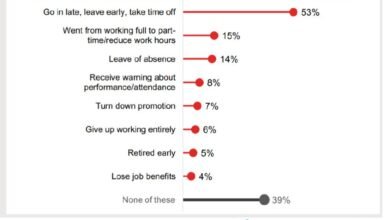
By | Sarah Kaminski
When it comes to finances, small decisions add up and can lead to huge changes in your life.
Even your daily trip to a coffee shop can cost you from $307 up to $736 more yearly than if you’d brew your own coffee beverage. Remember this the next time you’re in the mood for a pumpkin spice latte.
This, however, doesn’t mean you should deny yourself life’s simple pleasures in favor of saving. The trick is in planning everything ahead and understanding how each financial decision, no matter how insignificant it may seem, can change your life.
Here are some tips to point you in the right direction.
1. Start Budgeting
Are you struggling to pinpoint where your entire salary went at the end of each month?
Creating a monthly, quarterly, or annual spending plan will help you take control of your finances. Impulse purchases are one of the worst enemies of your financial health, and this kind of behavior is what can put you in a precarious situation.
To implement this simple method, calculate your net income and list all your monthly expenses. The next step is subtracting these expenses from your income to determine how much money you have for discretionary, that is, non-essential spending.
Tracking your spending is another essential step of a proper budgeting plan. This will allow you to understand your spending habits and how much you spend on food, dining out, entertainment, clothes, gas, and miscellaneous expenses.
Don’t forget to account for irregular expenses such as birthdays and holiday gifts.
With all this data, you can set up a smart and sustainable budget that will allow you to stop living from paycheck to paycheck. Add your financial goals — building a nest egg, creating an emergency fund, saving for your kid’s college tuition, or buying a house. You can use financial ratio calculators to track all this and keep yourself updated.
At the end of every month, check whether you stayed within the budget and see which expenses you can cut to meet your goals.
2. Live Below Your Means
Spending less money than you make is a surefire way of accumulating wealth and achieving financial freedom.
For this approach to work, you need to be persistent, which can be tricky with all the temptations lying ahead of you. Trendy clothes, a new, flashy car, and the latest gadgets will keep testing you.
However, if you understand how staying frugal can transform your future, it will be easier to trade instant gratification for long-term goals. So, opting for a smaller apartment even though you can afford a bigger one, buying a used car instead of a fancy, gas-guzzling SUV, or refraining from maxing out your credit card even if you can spend more will ultimately pay off.
You’ll be able to live a less stressed, debt-free life and enjoy a feeling of financial security.
3. Start Investing
Contrary to popular belief, you don’t have to be filthy rich with a lot of cash to burn if you want to become an investor. As a matter of fact, you can start investing with as little as $100 a month.
If you follow the first two tips, then this is the logical next step, as there will be more room to sock money away and build an investment portfolio.
What’s great about investing is that you don’t have to work more if you want to make more. Investing in stocks, bonds, mutual funds, retirement plans, annuities, and other financial instruments will make your money work for you and generate passive income.
If you’re not willing to risk, stick to bonds, as they’re less unpredictable, which is why their ROI is lower. Or you can play it safe and invest in blue-chip stocks, that is, shares in big companies with a proven financial track record.
4. Cut Unnecessary Costs
After you’ve listed and written down your monthly expenses for the purpose of budgeting, it’s a good idea to revisit all the subscriptions and review your spending.
By trimming the fat from your budget, you can save some money and use it in a better way.
For example, apart from canceling streaming services you hardly ever watch or online magazines you almost never read, you can think about switching to different cable or insurance providers with more affordable plans.
As for electricity and utility bills, you can try reducing consumption, switching to LED bulbs, turning off lights you don’t use, weatherstripping your doors, and turning down the thermostat when you go to bed.
You can even save on food if you buy groceries at discounts. Make your every store trip count by having a shopping list and buying in bulk, as you’ll get what you need for a fraction of the price. Why pay for excessive packaging when you can both save and be eco-friendly?
Wrapping Up
These decisions can help you achieve financial success. Grit and persistence are key to sticking to your plan without succumbing to superficial wants that will add no value to your life in the long term. Prioritize smart purchases and make sure to trace every cent you spend.






